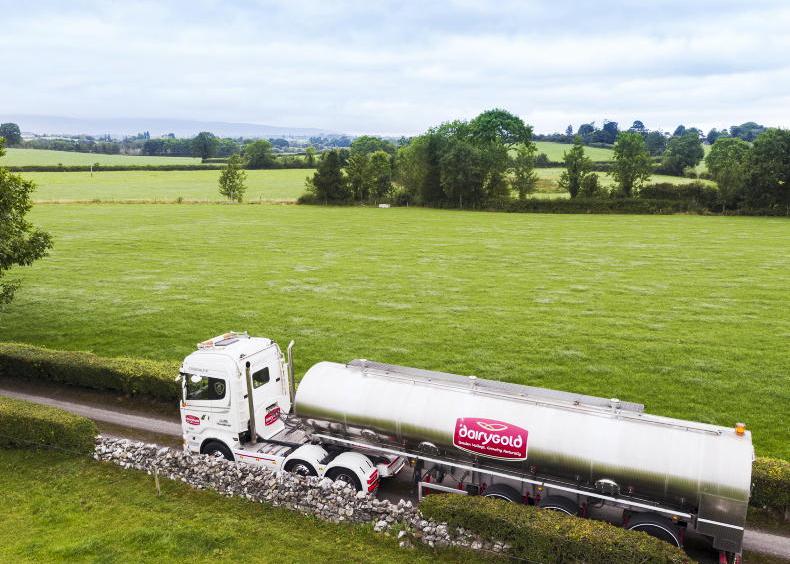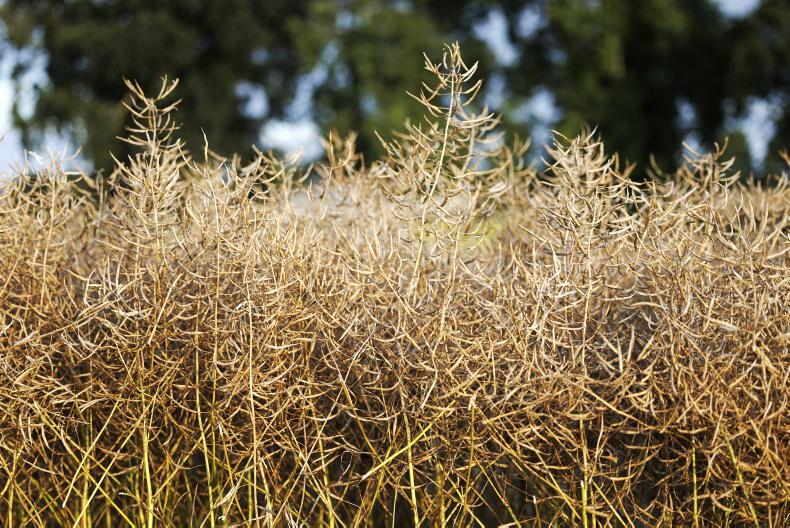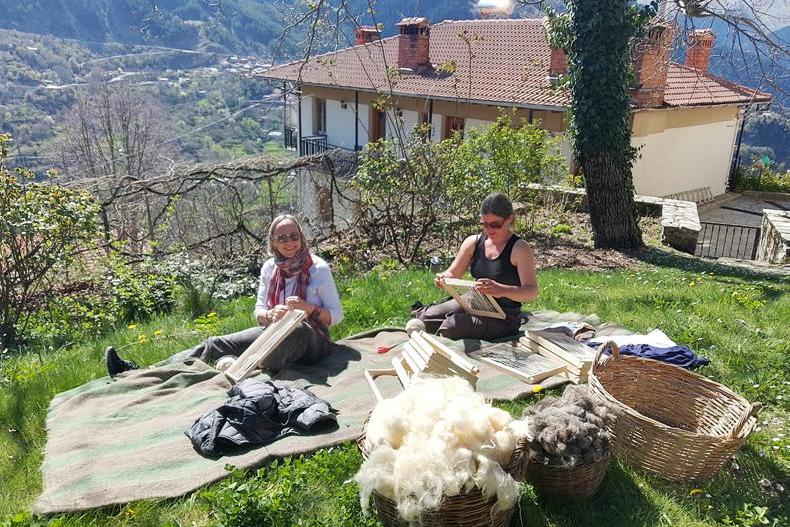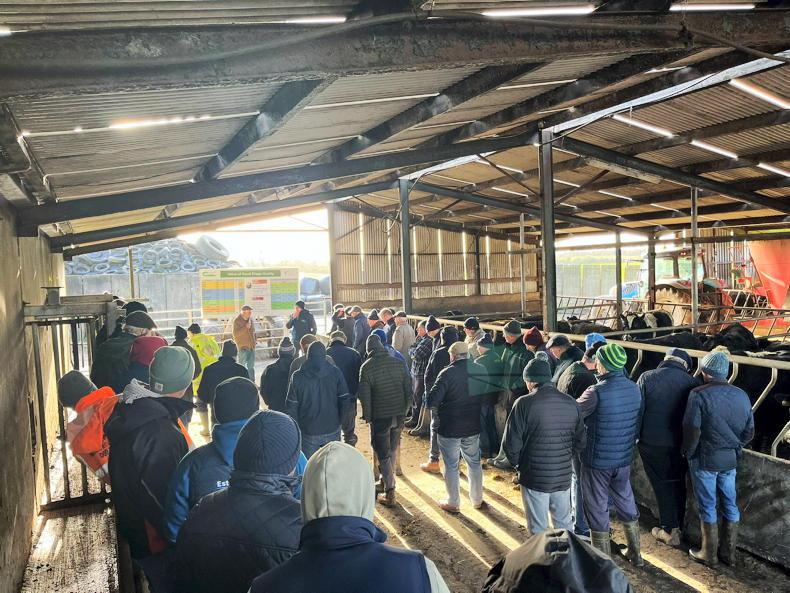Gearóid Maher is a well-known and highly respected dairy farmer based in Cappamore, Co Limerick, where he milks a herd of 110 purebred British Friesians on his 83ha farm, in partnership with his wife, Sarah.
Rightly celebrated for his proficiency as a farmer, Gearóid won the 2022 Dairygold Milk Quality Award and is a National Dairy Council ambassador.
Underpinning these awards is Gearóid’s success in weaving a strong social and environmental strand into his dairy system, without undermining performance or profitability.
This, combined with his experience as a farm adviser, makes him uniquely qualified to comment on how farming and environmental aspirations can be reconciled. I joined Gearóid on a recent farm walk to learn more.
Hedging bets
‘Less is best’ informs much of Gearóid’s approach. He soil-tests regularly to target nutrient applications which, along with multispecies swards (that fared badly last year), have led to a 50% reduction in N use. He reduced concentrate feed use by 50% in 2022, replacing imports with locally-grown sugar beet in winter.
He rarely uses herbicides, instead growing more tolerant of ‘weeds’, recognising also their importance for pollinators.
Gearóid is currently massively increasing slurry storage capacity (for about 250 cows) with TAMS support, even though he isn’t planning on increasing herd size: his ‘hedge’ against a changing climate. This increased capacity also means he can apply his slurry as and when he wants (using his own LESS gear, at a maximum rate of 2,000 gals/ac), greatly enhancing the utility and impact of this farm resource.
Nurturing nature
“Sometimes, the less we do, the more we do for nature,” says Gearóid. His flourishing hedgerows aren’t cut, simple as that – instead, his cows browse them back, creating an ‘umbrella effect’ which they utilise for shelter and shade. Not having a wire fence is the key, he says – gappy hedges are laid to make them stockproof.
He enjoys seeing the natural dividend, with buzzards, herons, ducks, owls and pine martens to keep him company.

Gearoid in his mixed woodland area.
Gearóid also has 20 acres of mixed forestry which, rather than clear-felling, he plans to thin and allow mature, grazing underneath to manage the ground cover.
This ‘green barn’ provides valuable browse, shelter and shade for the cows: they typically wander in there on hot afternoons. Gearóid also created a new orchard by the farmhouse, a fruitful legacy for daughters Sally Kate and Lily.

Gearóid Maher with fellow Limerick farmer, British Friesian enthusiast and IFJ Footprint farmer, Martin Crowe.
Water quality is a huge concern, as on most dairy farms. Gearóid was involved in the Mulkear EIP, the legacy of which is visible in the form of ponds, sediment traps, rich riparian zones and wonderfully deep, untouched drains (minnows attesting to the water quality and oak saplings regenerating on the banks).
A new underground rainwater harvesting system will help to improve water-use efficiency.
Gearóid’s beautiful, remarkably docile herd is happy at pasture on the day of our visit, testament to his strong interest in herd welfare (antibiotics are rarely used).
“Having a healthy, fertile herd reduces the need for replacements and increases kilos of milk produced over the lifetime of the cows and is the foundation to a sustainable farming system,” says Gearóid.
He laments the huge level of stress in dairying today, when there are so many targets to meet and interests to serve, and such an expectation to conform, none of which is conducive to good mental health.
Gearóid relishes his freedom to farm, recognising that the unique attributes of his farm (heavy soils, etc) need a bespoke approach, not a formulaic one.

Gearóid Maher at his farm in Co Limerick.
As farming and environmental agendas continue to clash, it’s inspiring to see how Gearóid has embraced the sustainability challenge so proactively, and established common ground between what are often competing agendas.
His story, and his skill and generosity in sharing it, are inspirational, cutting through the talk to deliver the action and leadership that we so badly need.
Try not doing something for a change, not cutting back a hedge or dredging a drain. Save some time and money and see what happens.
The Mulkear EIP explored on-farm actions to improve water quality in the river Mulkear catchment. See here.
Name: Gearóid Maher.Location: Cappamore, Co Limerick.Farm type: dairy. Farm size: 83ha.Focus: making his farm profitable, resilient and enjoyable.Schemes: ACRES, formerly Mulkear EIP.
Gearóid Maher is a well-known and highly respected dairy farmer based in Cappamore, Co Limerick, where he milks a herd of 110 purebred British Friesians on his 83ha farm, in partnership with his wife, Sarah.
Rightly celebrated for his proficiency as a farmer, Gearóid won the 2022 Dairygold Milk Quality Award and is a National Dairy Council ambassador.
Underpinning these awards is Gearóid’s success in weaving a strong social and environmental strand into his dairy system, without undermining performance or profitability.
This, combined with his experience as a farm adviser, makes him uniquely qualified to comment on how farming and environmental aspirations can be reconciled. I joined Gearóid on a recent farm walk to learn more.
Hedging bets
‘Less is best’ informs much of Gearóid’s approach. He soil-tests regularly to target nutrient applications which, along with multispecies swards (that fared badly last year), have led to a 50% reduction in N use. He reduced concentrate feed use by 50% in 2022, replacing imports with locally-grown sugar beet in winter.
He rarely uses herbicides, instead growing more tolerant of ‘weeds’, recognising also their importance for pollinators.
Gearóid is currently massively increasing slurry storage capacity (for about 250 cows) with TAMS support, even though he isn’t planning on increasing herd size: his ‘hedge’ against a changing climate. This increased capacity also means he can apply his slurry as and when he wants (using his own LESS gear, at a maximum rate of 2,000 gals/ac), greatly enhancing the utility and impact of this farm resource.
Nurturing nature
“Sometimes, the less we do, the more we do for nature,” says Gearóid. His flourishing hedgerows aren’t cut, simple as that – instead, his cows browse them back, creating an ‘umbrella effect’ which they utilise for shelter and shade. Not having a wire fence is the key, he says – gappy hedges are laid to make them stockproof.
He enjoys seeing the natural dividend, with buzzards, herons, ducks, owls and pine martens to keep him company.

Gearoid in his mixed woodland area.
Gearóid also has 20 acres of mixed forestry which, rather than clear-felling, he plans to thin and allow mature, grazing underneath to manage the ground cover.
This ‘green barn’ provides valuable browse, shelter and shade for the cows: they typically wander in there on hot afternoons. Gearóid also created a new orchard by the farmhouse, a fruitful legacy for daughters Sally Kate and Lily.

Gearóid Maher with fellow Limerick farmer, British Friesian enthusiast and IFJ Footprint farmer, Martin Crowe.
Water quality is a huge concern, as on most dairy farms. Gearóid was involved in the Mulkear EIP, the legacy of which is visible in the form of ponds, sediment traps, rich riparian zones and wonderfully deep, untouched drains (minnows attesting to the water quality and oak saplings regenerating on the banks).
A new underground rainwater harvesting system will help to improve water-use efficiency.
Gearóid’s beautiful, remarkably docile herd is happy at pasture on the day of our visit, testament to his strong interest in herd welfare (antibiotics are rarely used).
“Having a healthy, fertile herd reduces the need for replacements and increases kilos of milk produced over the lifetime of the cows and is the foundation to a sustainable farming system,” says Gearóid.
He laments the huge level of stress in dairying today, when there are so many targets to meet and interests to serve, and such an expectation to conform, none of which is conducive to good mental health.
Gearóid relishes his freedom to farm, recognising that the unique attributes of his farm (heavy soils, etc) need a bespoke approach, not a formulaic one.

Gearóid Maher at his farm in Co Limerick.
As farming and environmental agendas continue to clash, it’s inspiring to see how Gearóid has embraced the sustainability challenge so proactively, and established common ground between what are often competing agendas.
His story, and his skill and generosity in sharing it, are inspirational, cutting through the talk to deliver the action and leadership that we so badly need.
Try not doing something for a change, not cutting back a hedge or dredging a drain. Save some time and money and see what happens.
The Mulkear EIP explored on-farm actions to improve water quality in the river Mulkear catchment. See here.
Name: Gearóid Maher.Location: Cappamore, Co Limerick.Farm type: dairy. Farm size: 83ha.Focus: making his farm profitable, resilient and enjoyable.Schemes: ACRES, formerly Mulkear EIP. 











SHARING OPTIONS